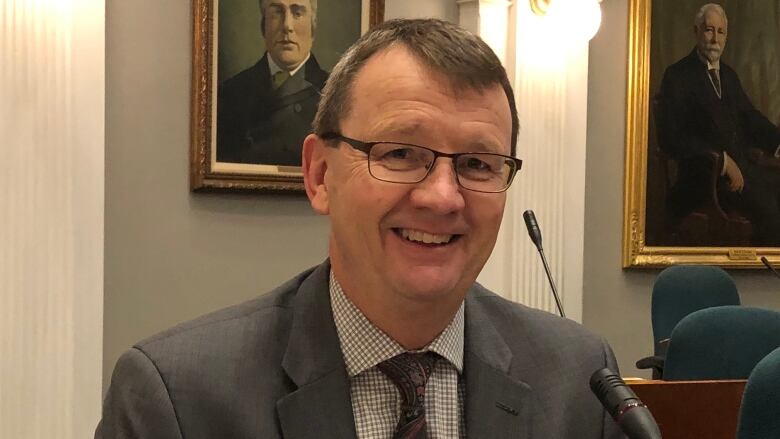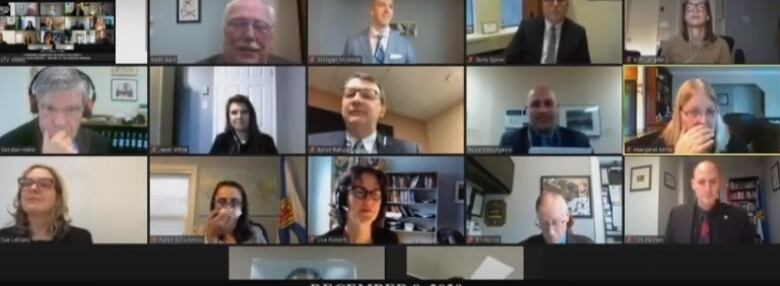McNeil government has no plans to create COVID economic recovery strategy
'Good public health policy is good economic policy,' says top finance official

Nova Scotia does not intendtocreate and publicly release a formal COVID-19 economic recovery plan as some other governments have done, the province's deputy finance minister said Wednesday.
Byron Rafuse told members of the public accounts committee the Nova Scotia government is committedto controlling the spread of COVID, which he maintained is the foundationof a sound economic recovery plan.
"Good public health policy is good economic policy," Rafuse told the committee during its first virtual meeting. "So the recovery will occur as the pandemic is dealt with."
Nova Scotia and the rest of Atlantic Canadahavebeen widely applauded for theirhandling of the pandemic, including the creation of a regional bubble that allowed residents to travel freely between the four provinces.
COVID cases dropping
The Atlantic Bubble burst as a second wave of the pandemic hit the region. Nova Scotia reacted quickly to the rising number of cases, tighteningpublic health restrictions in COVID hot spots and rampingup testing, including for people showing no signs of illness.
On Wednesday, the province reported six new COVID cases as it prepares for the arrival of the first batch of COVID vaccine later this month. The number of active cases continued its steadydrop, with 71 reported Wednesday, down from 78 the day before.
Rafuse saidrather than putting together a formal recoveryplan, the Nova Scotia government has beenfocused on turning the situation around.
"The idea is to create the conditions to allow public health measures to be eased, rebuild public confidence and then continue to support industries as we go forward," he said.
Recovery will be slow
Recovery could take years, he cautioned,because the province has lost out on expectedgrowth. Some sectors of the economy willrebound faster while others are dependant on factors out of the province's control.
Tourism, for example, will need border restrictions to be eased, flights to be restored and people to recover their confidence to travel. Exports,particularly seafood shipments to China, willdepend on the recovery there and the demand forNova Scotia lobster.
"We don't anticipate the overall economy to be back next year, even though we have positive growth," said Rafuse.

Although the province has decided to chart its recovery without a public plan, it's clear Nova Scotia's acting auditor general expected the province to create one.
"It is expected that many jurisdictions will have long-term economic recovery plans to help them regain their health, both physically and economically," wrote Terry Spicer in his Dec. 1 report.
"The province of Nova Scotia has not yet released its own long-term economic recovery plan."
He listed the rolloutof aplan as one of fivepossible questions Nova Scotians may want to ask of their government.
Other provinces' plans
Rafuse suggested the recovery plan released by British Columbia in September was motivated by the election held there last month, and the one Alberta made public last summer wasn't really about the pandemic.
"The B.C. one, I would say,was part of an election process and therefore had some limitations," he told CBC News in an interview after the meeting. "From what I understand from the Alberta one, it was more long term, it was more to deal with moving their economy away from the tendencyof oil.
"They had to deal with that issue, as well as COVID,but I wouldn't say that's necessarily aCOVIDrecovery plan."












_(720p).jpg)


 OFFICIAL HD MUSIC VIDEO.jpg)
.jpg)



























































































